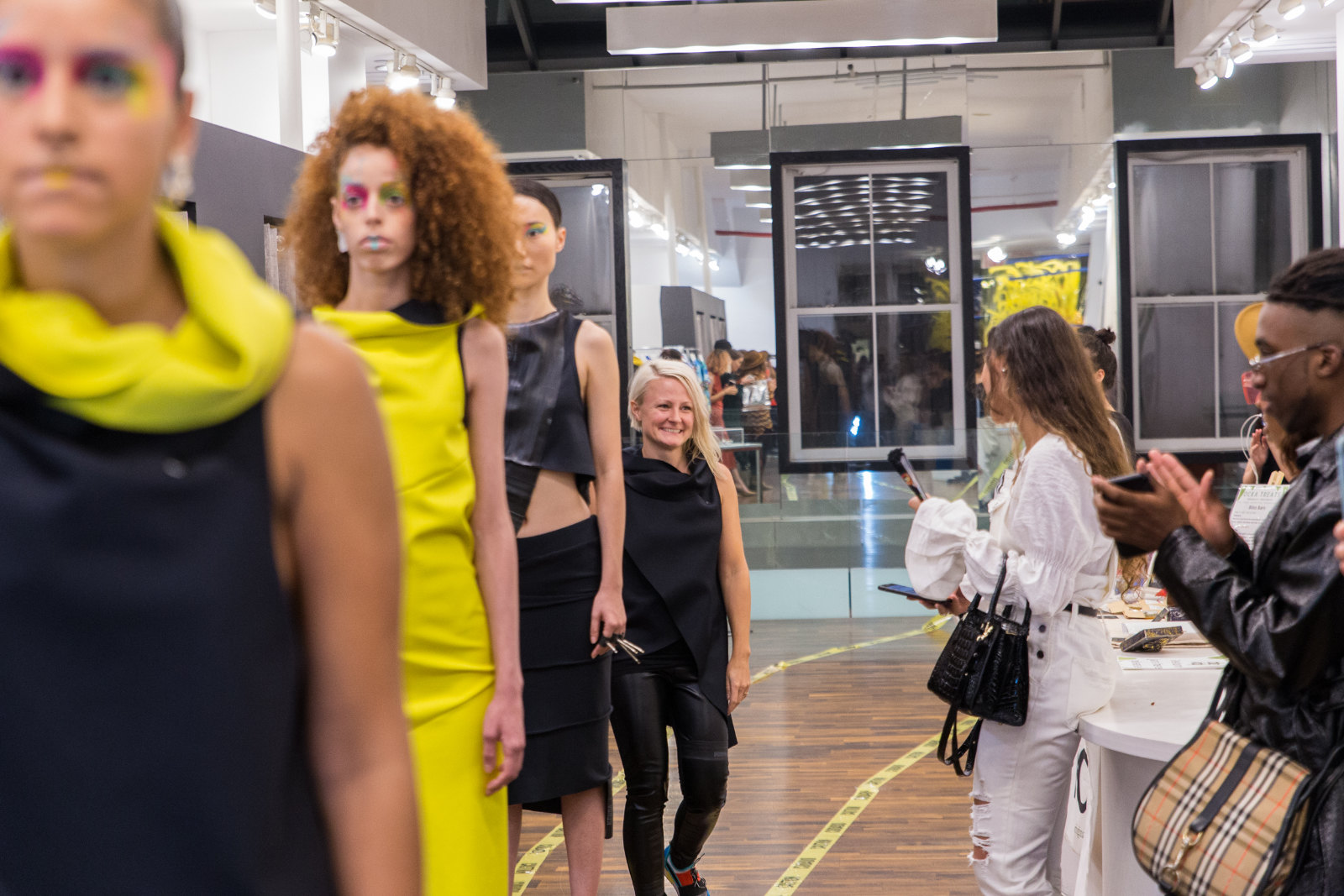
FASHION Malaika Boysen Haaning, the designer behind Malaika New York, differentiates her label through its commitment to zero waste. Jack Yan interviews the Danish-born, US-based designer
First published in the April 2020 issue of Lucire KSA
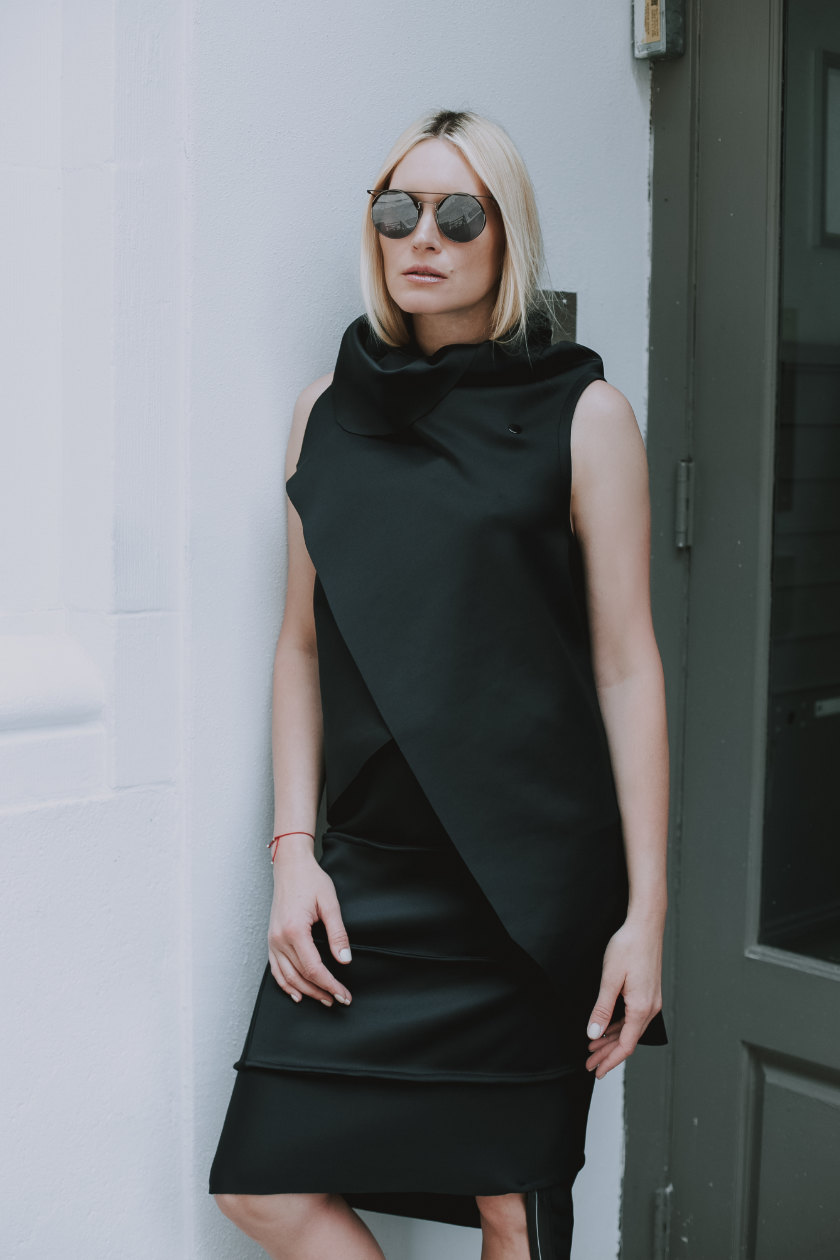
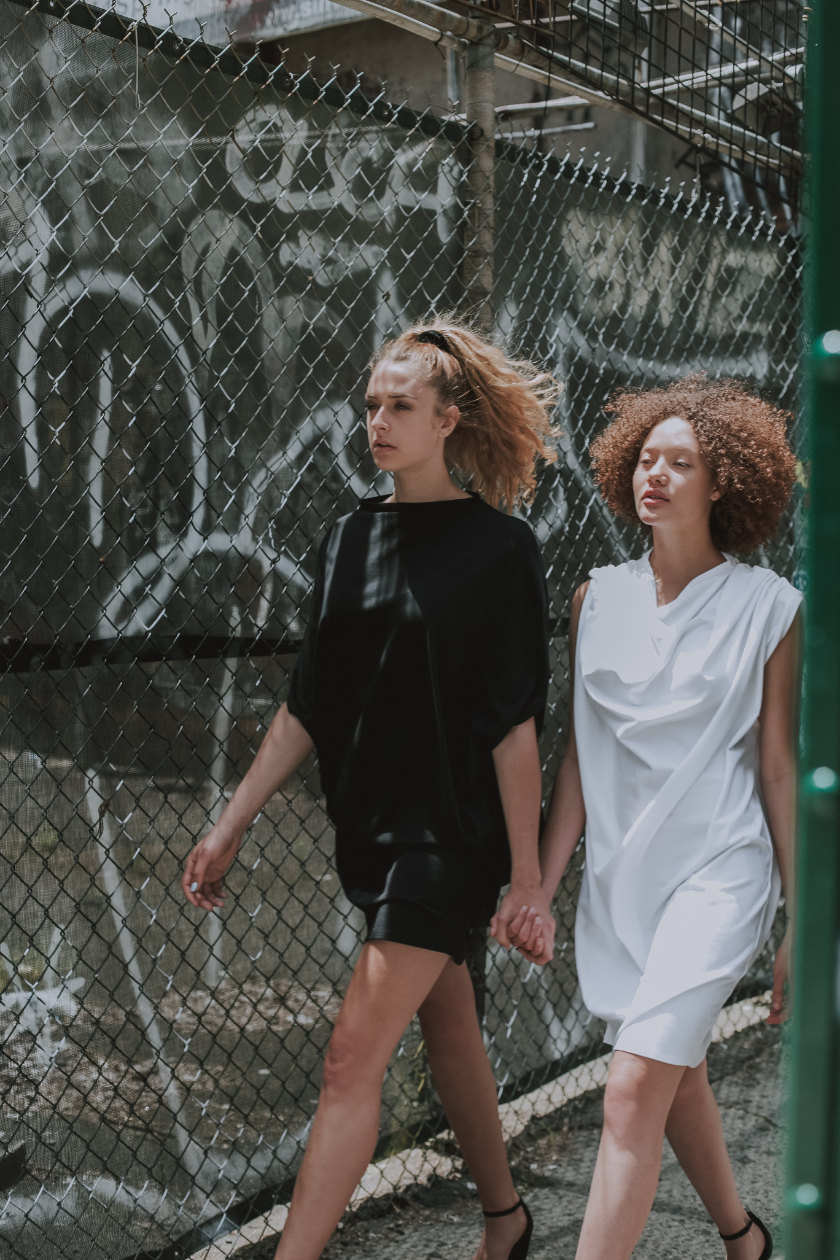
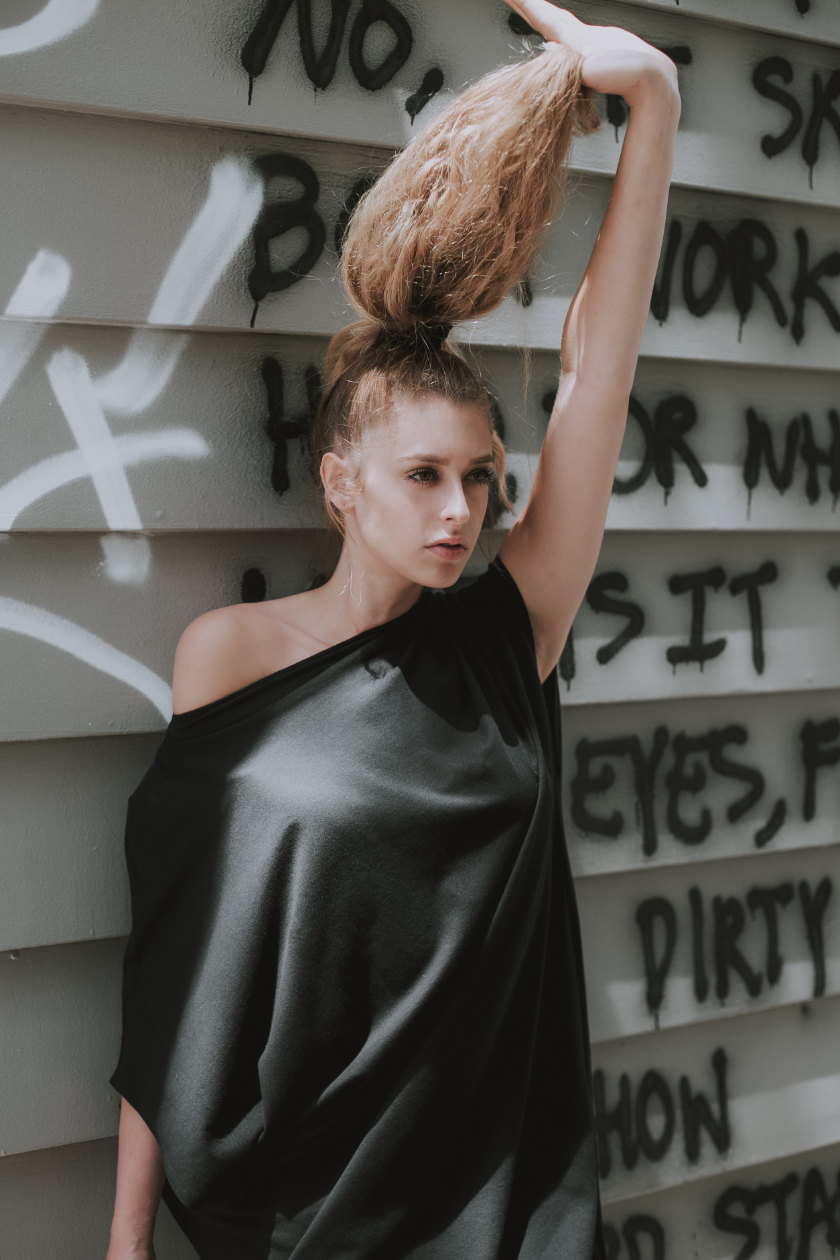
Scandinavian modernist design in amongst the urban setting of New York
Jack Yan is publisher of Lucire.
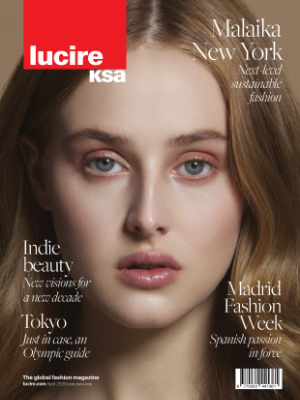 The Malaika New York logo says a great deal: there’s a halo above the lettering, in a thin, sans serif, all-cap Malaika. That alone tells you a great deal about its approach to fashion: it’s modern, and it’s good for the planet.
The Malaika New York logo says a great deal: there’s a halo above the lettering, in a thin, sans serif, all-cap Malaika. That alone tells you a great deal about its approach to fashion: it’s modern, and it’s good for the planet.
Malaika Boysen Haaning, who founded the label in New York in 2016, hails from Denmark, a country known for its ethics and social conscience, as well as an appreciation of modernist design. Her label, which takes her first name (Swahili for ‘my angel’) and the city in which she’s based for its appellation, is a 99 per cent zero-waste brand, a claim which few others, even those promoting a green image, can make.
Haaning originally trained in business, but even during her school days she wanted to become a fashion designer. ‘I obtained a business and logistics degree based on advice from my student counsellors, who knew that I eventually wanted to start my own fashion company. They understood that it would play an important role in running a business, which I now clearly see,’ she tells Lucire.
For the millennium, Haaning designed her own outfit for the New Year’s party: ‘a silver skirt with a silver overlay netting, large silver bows and a silver crop top. I guess that’s when my dream really took off!
‘I visited two Danish fashion schools and loved every minute of it. After graduating from business school, I considered enrolling in a fashion course. However, both my parents and student counsellor said it wasn’t a smart move, as there was only a small chance that I would actually be able to work as a designer due to it being such a competitive industry.’
At that point, she began applying for jobs outside the industry and became a freight forwarder trainee in Billund, Denmark, the same city where Lego hails from. She was there for two-and-a-half years and was head-hunted by Houston, Texas-based freight forwarder DSV, taking her Stateside, with Haaning going between Houston, Stavanger (Norway) and Cleveland. Haaning, who is quinlingual, speaking Danish, Norwegian, English, German and French, could put her language skills to use, but having done air and ocean freight, projects and sales, she couldn’t see a future in the industry.
It was then she decided to pursue her dream, enrolling at Parsons School of Design in New York City. ‘I chose … Parsons because I wanted to study at one of the best fashion schools in the world. They have a great reputation and an even better curriculum, so it was an easy choice for me.’
While there, Haaning took on five different internships with established design houses, which she says were all different, and she couldn’t identify one as being better than the other. However her internships were revealing: ‘What surprised me the most was how much waste was being generated from creating collections each season.’
She adds, ‘I also learned that a classically cut garment creates 30 per cent waste which ends up in landfill.’ This all proved a catalyst, though she didn’t realize it at the time, for her to start her own zero-waste label.
With her name having such an angelic meaning, Haaning believes that her destiny was to protect the environment. ‘I feel like my journey was always going to lead me to founding my own fashion brand. Malaika New York is a culmination of my values, my personality and my passion to protect the environment,’ she says.
Her upbringing in Denmark also helped. As a leading country in sustainability, Haaning recalls, ‘I grew up hanging my clothes on the line, using reusable cloths to clean, saving water and closing windows to conserve energy. Danish houses are four times thicker to keep them cool in the summer and warm in the winter.’ Denmark, she adds, is a largely egalitarian and fair society: ‘We have very few homeless people in Denmark, if they are homeless it’s most likely their choice. Denmark is a welfare state where citizens pay 50 per cent in taxes so almost everything is provided by the state (including education and health care), and therefore all citizens are more equal. I grew up with recycling systems, people using their bikes instead of cars and so on.’
At Parsons, she had a zero-waste assignment. ‘We were assigned to create a garment made from a single piece of fabric with very limited cutting. This is where I created the prototype of the now-famous Malaika New York staple, the Zero Vest. I thought, why would you waste fabric if you didn’t have to?’
Having started her label, Malaika New York approaches things differently, to keep to its zero-waste principles. ‘What we do differently to other fashion brands is that we don’t follow trends, rather we create timeless pieces that will not only be in style now, but well into the future. We create staple garments that you can combine with your existing pieces, so you don’t have to completely change your wardrobe each season. Most of our pieces have at least two ways you can wear them, where most other brands only have one way. We also try to limit to one-size pieces or two sizes like S/M, M/L; we try to reduce our footprint whenever possible.’
continued below
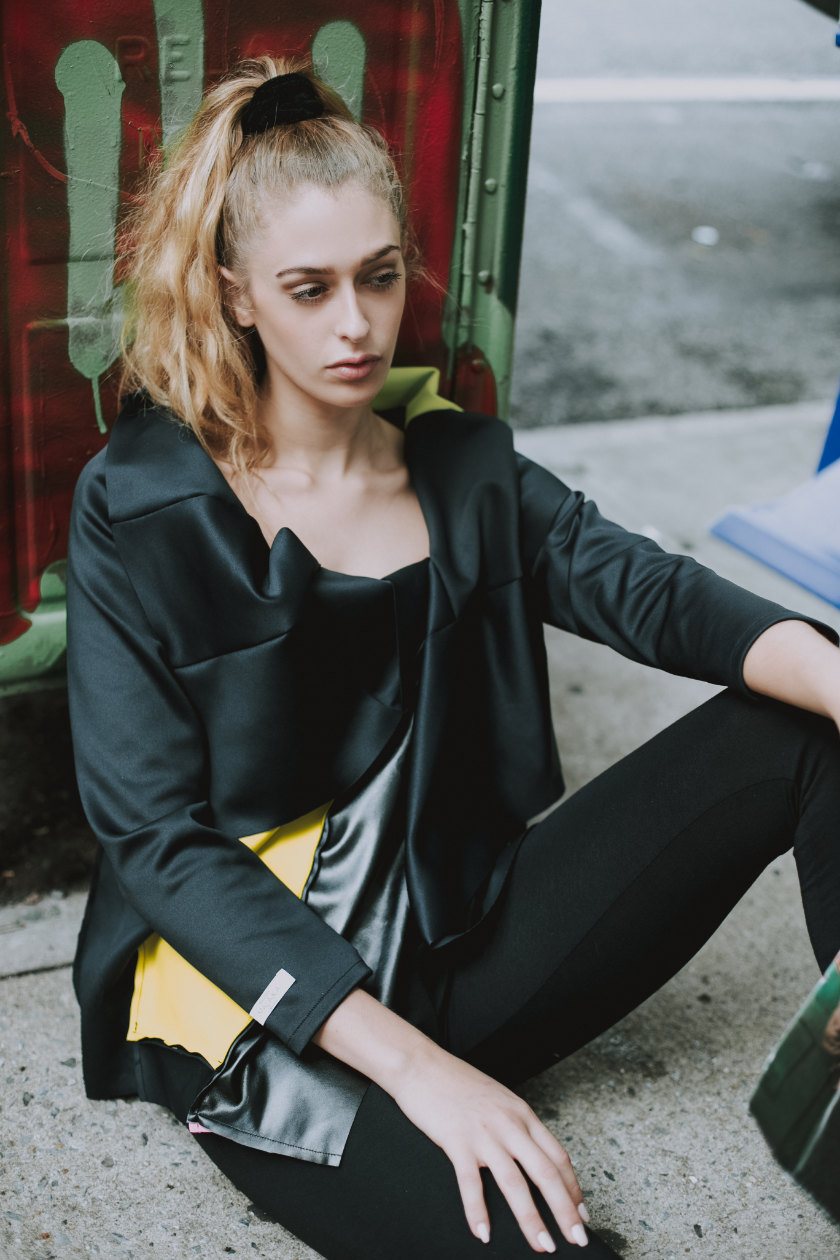
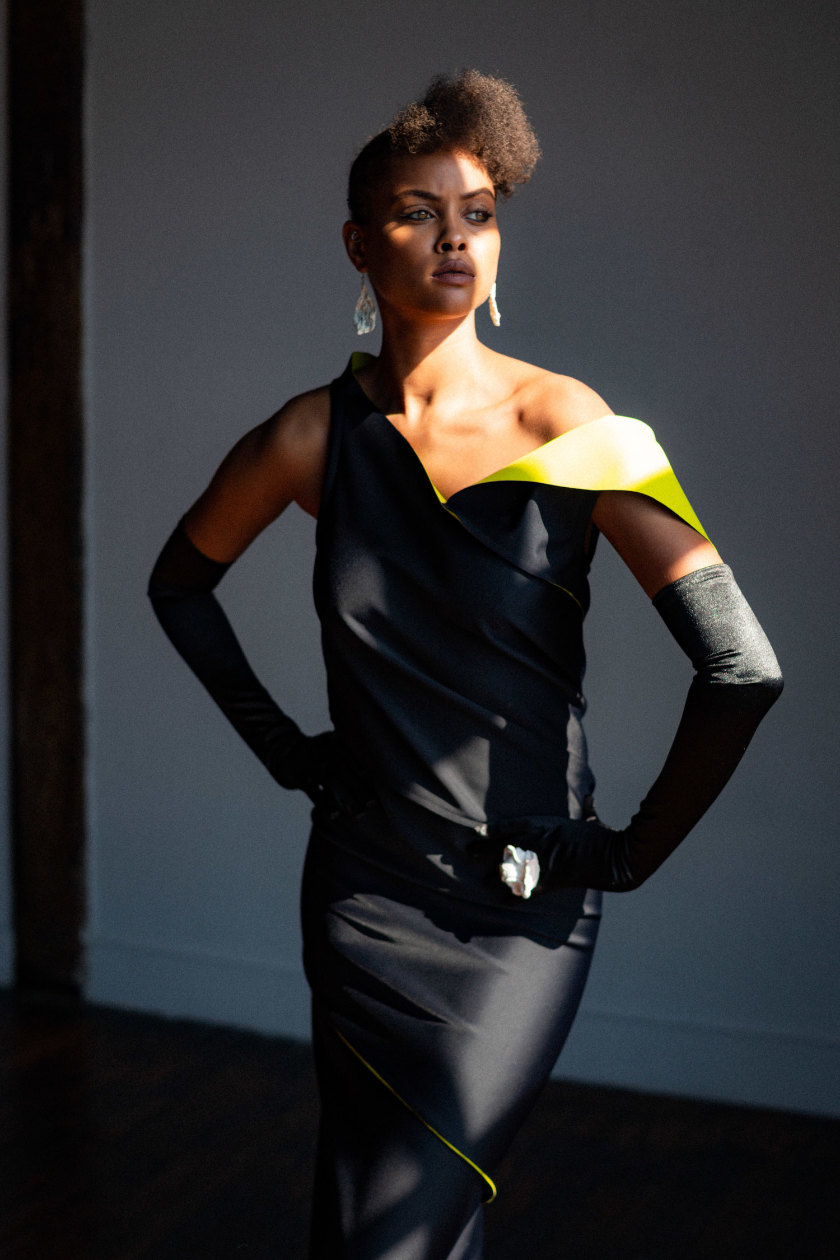
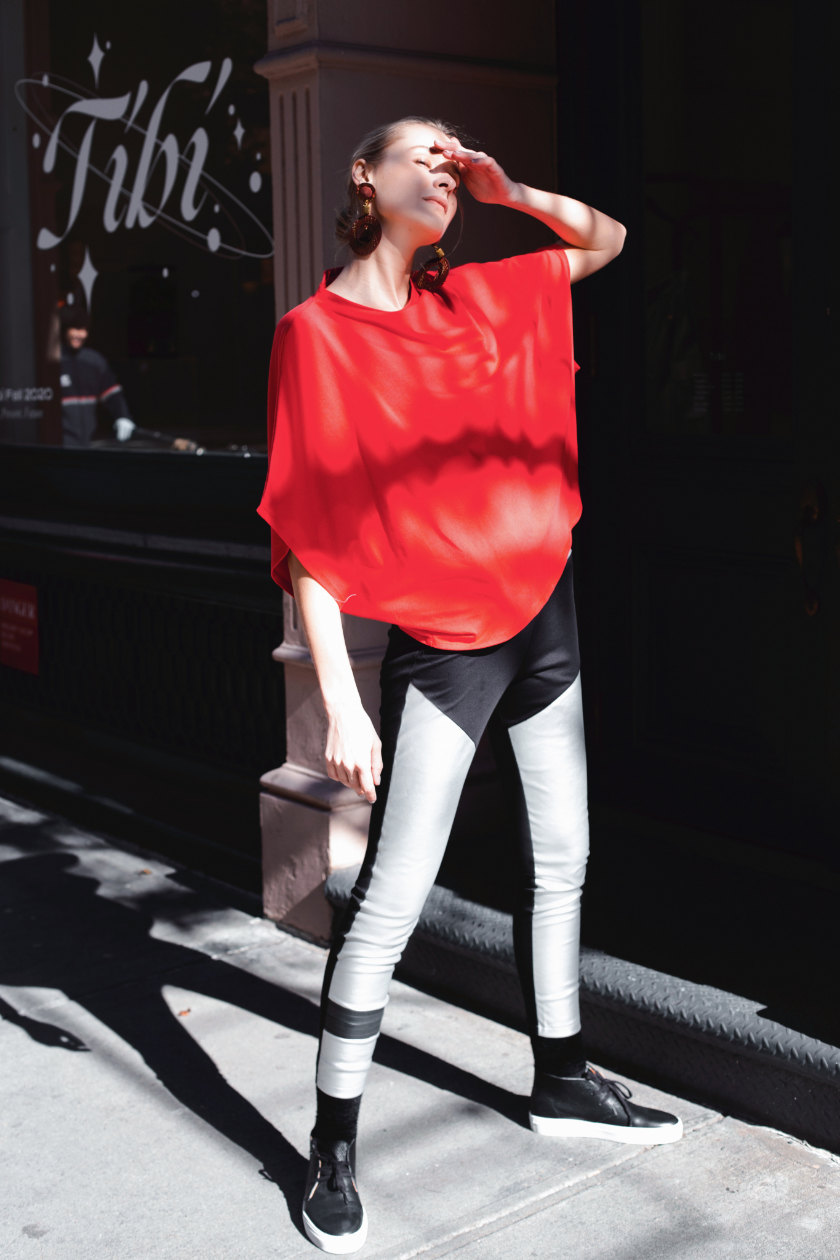
She says there is a considerable challenge to design the pieces that can be worn multiple ways, and that most of Malaika New York’s designs ‘take a lot of effort and creativity to create.’
Her other approach is to get ideas straight from her community, a wise idea that also mitigates risk in designing: if you know you have potential buyers, then things won’t be left on the shelves. ‘We work closely with women and ask them what they’re looking for, rather than creating pieces that can only be worn for one season because of wasteful trends.
‘With us you get something you won’t find with any other brand. Most of our pieces are truly engineered large pieces of fabric or fabric squares formed by snaps, sewing techniques or buttons to create unique shapes.’
This ingenuity in Haaning’s design approach has one source in Scandinavian design and architecture, and she admits that there are similarities. ‘Architecture acts as one of my biggest inspirations!’ she says. ‘I love architecture and shapes, which I’m very much inspired by.
‘The Danish style is very minimal which clearly shows in our designs. In the us, Scandinavian design is extremely sought-after and expensive.’
With her claim that Malaika New York is 99 per cent zero-waste, Haaning notes that she isn’t just looking at sourcing eco-friendly materials, but using every single piece. The scraps are given away to quilting societies, to close the loop, and some are used in other Malaika New York designs; they even incorporate scraps that they source from Fabscrap, a local recycling company. ‘We’re continually innovating so nothing is set in stone and if there’s anything better we can do as a company, we will!’
As an example of how her designs are zero-waste, in 2018, Haaning created garments which used the entire fabric square. Despite this approach, they look stylish and well executed. ‘I wanted to base everything on a square and really push the envelope. I started drawing squares on the body, trying to connect them in different ways. Many times, my ideas drawn on paper weren’t actually transferable, so I had to really play with my techniques in order to make it work. The square collection is based on a draping and sewing technique that I developed, trying to create a way to use only squares. The real challenge came when I had to master the grading technique as I couldn’t send it off to anyone else!’
She also uses upcycled materials in her designs, such as bicycle tyre tubes that come from local bike shops. These used to be thrown out; now the stores that Malaika New York has a relationship with save them.
Furthermore, there is an emphasis on quality. ‘You can get fast fashion pieces that will only last a few washes, and cost much less than our designs at Malaika New York. However, our T-shirts will last you longer than the five T-shirts you bought from a fast fashion company.’
This commitment has seen some celebrities support Malaika New York: Hayley Law (Riverdale) is a customer, and singer Raiche has worn their Ribbon Dress (which is a literal and accurate description: a dress cleverly made of ribbons). The character, Lizzie Elliot, from Netflix’s Altered Carbon, wears Malaika New York’s Bike Tube skirt.
Haaning’s next step is to focus on e-commerce. She already has retail in Europe, but is looking forward to adding outlets in countries that she believes would work with their æsthetics, such as the Netherlands, Germany, and her native Denmark.
With authenticity being demanded by consumers worldwide, Malaika New York, which stands up to scrutiny, should readily find supporters for living its brand and its zero-waste approach. •
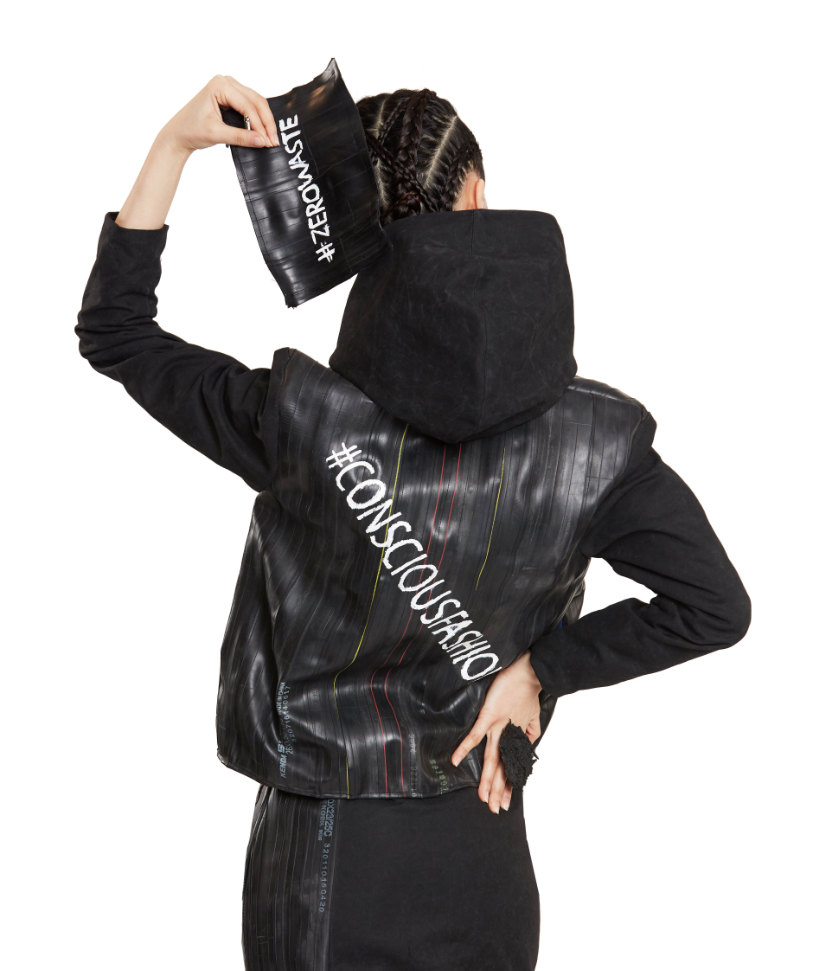
Related articles hand-picked by our editors
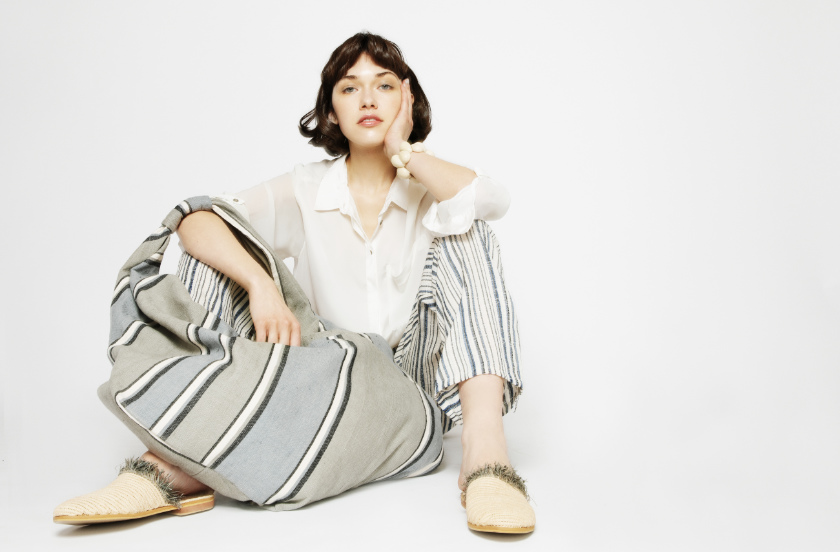
Exchange you can believe in
Some fashion labels merely preach sustainability. Abury goes several steps further, equipping communities and inspiring creativity. Jack Yan talks to its founder Andrea Bury
Photographed by Suzana Holtgrave
First published in the July 2019 issue of Lucire KSA
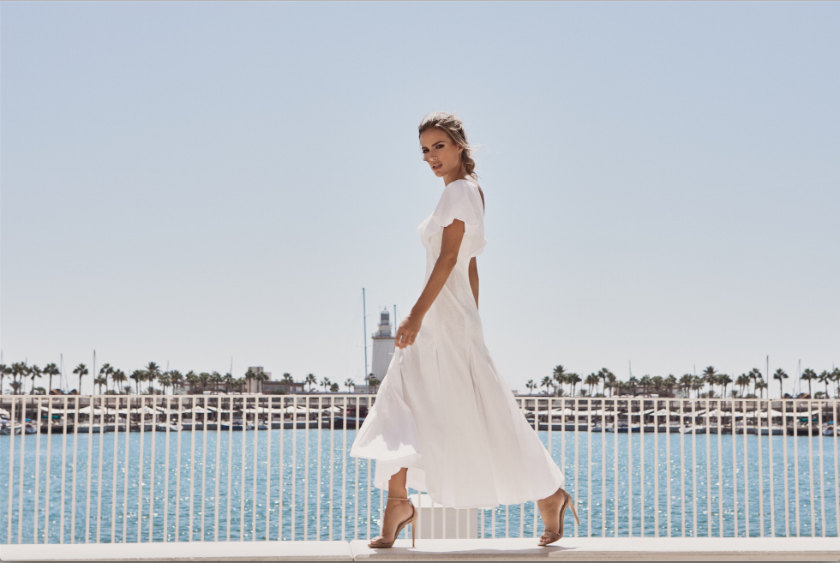
Making luxury ethical
Saudi designer Sadeem Alshehail launched her prêt-à-couture fashion label Sadeem in 2016. Three years on, she’s already widely recognized as a leader in sustainable design. Qurratulain Wahab met up with her to find out more
From the September 2019 issue of Lucire KSA
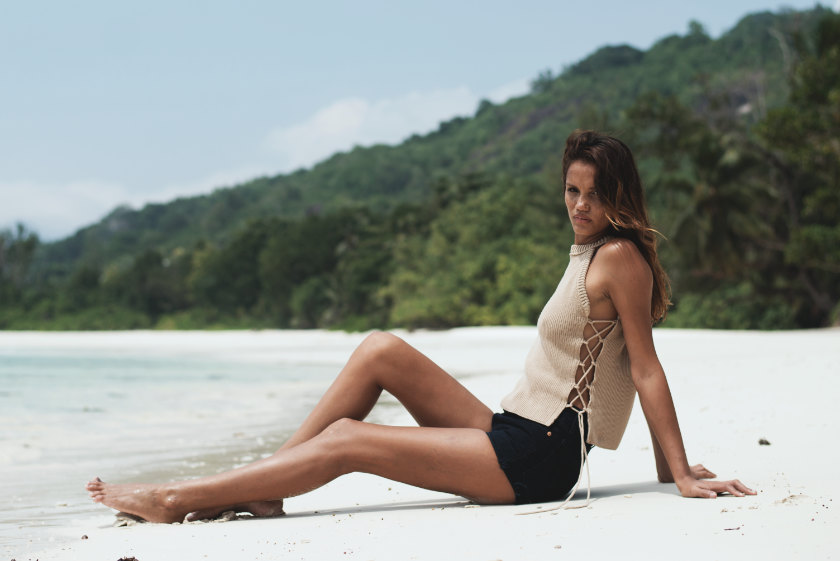
Next-level fashion
Cass, an eco-fashion label founded by French-born designer Eléonore Cass in 2017, has already earned an international reputation with its bold colours and strong ethics. She speaks to Jack Yan
From issue 40 of Lucire and the March 2019 issue of Lucire KSA
Advertisement
Copyright ©1997–2022 by JY&A Media, part of Jack Yan & Associates. All rights reserved. JY&A terms and conditions and privacy policy apply to viewing this site. All prices in US dollars except where indicated. Contact us here.